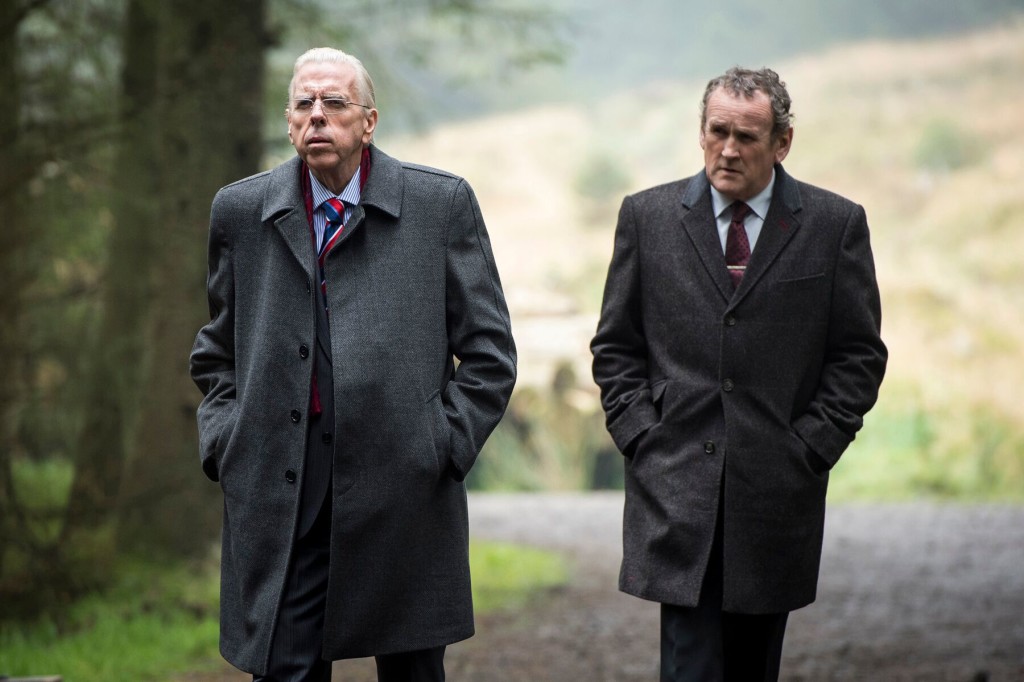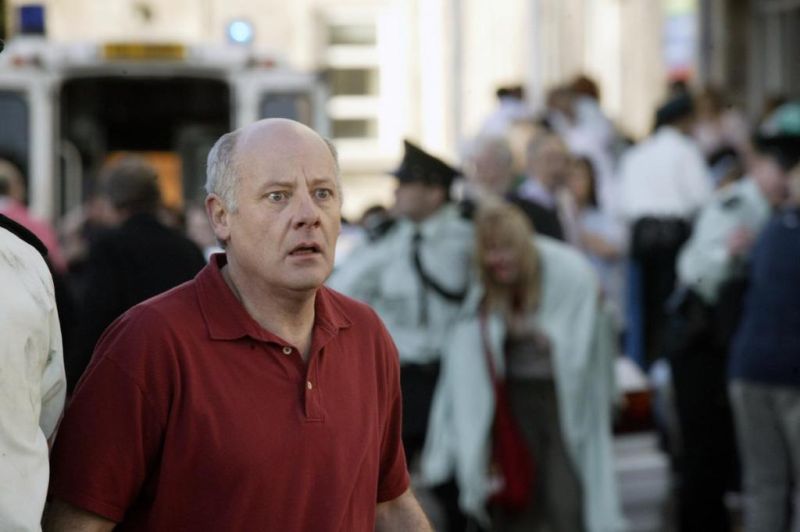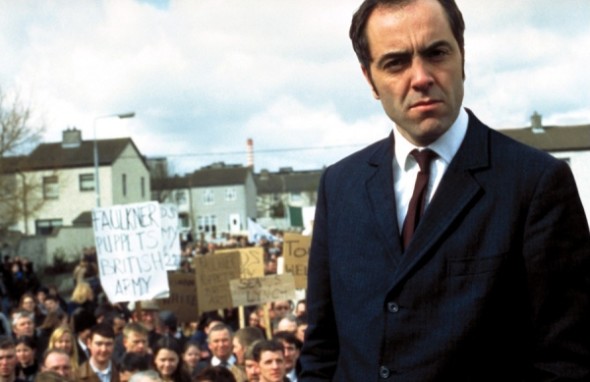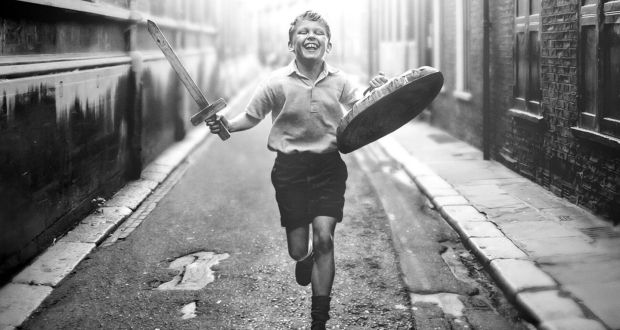
In Belfast, Kenneth Branagh’s superb coming of age story, we see Northern Ireland’s Troubles through the eyes of eight-year-old Buddy (Jude Hill). His dad (Jamie Dornan) works for two weeks at a time in Britain, so his mom (Caitriona Balfe) is raising Buddy and his older brother by herself most of the time. The family is under severe financial pressure. They are a nominally Protestant family living in a working class Belfast neighborhood, integrated with Catholics.
The movie’s opening is set on August 15, 1969, the day the Troubles intrude on Buddy’s neighborhood. Branagh perfectly captures the moment – the very second – that external events upend Buddy’s life. Overnight, his block has barbed wire at one end and a barricade at the other. Catholics are pressured to move out in a measure of ethnic cleansing.
Things get real, and the dad has the chance to move the family to Britain. There are factors that make uprooting the family a complicated decision. The audience is thinking, get the HELL out of THERE. After all, the family doesn’t know what we know – that the Troubles will persist for 29 more years.
This is autobiographical, the story of Kenneth Branagh’s own family. They escaped the Troubles by moving to from Belfast to Britain in 1970 when Branagh was Buddy’s age.
Although this story is about a specific child, telling it from the child’s point of view makes it universal. Children need security, but adult grievances, however valid, are prioritized over the security of children. The sectarians may think that they are targeting Catholics or Protestants, but the impact of their violence is to destroy safety, civility and predictability for all.
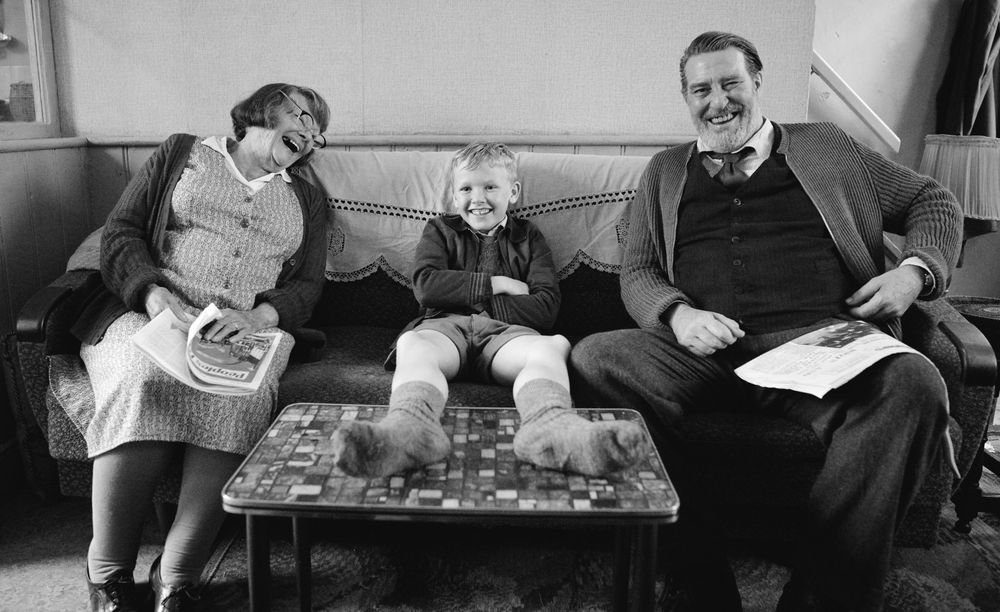
The performances are impeccable, especially those by Judi Dench and Ciarán Hinds as Buddy’s grandparents. (The grandfather has the best line in the film.)
And where did Branagh find this kid actor Jude Hill? He is completely believable in every scene – and he might just be the most adorable child on the planet.
Belfast is a family drama, but the family is Irish, so there’s plenty of humor.
Branagh has shot Belfast in a glorious black-and-white which amplifies both the historical period and the grittiness of the setting. The use of Belfast’s own Van Morrison on the soundtrack is perfect.
Belfast is justifiably one of the Oscar favorites. If you have heartstrings, they are gonna get pulled.

